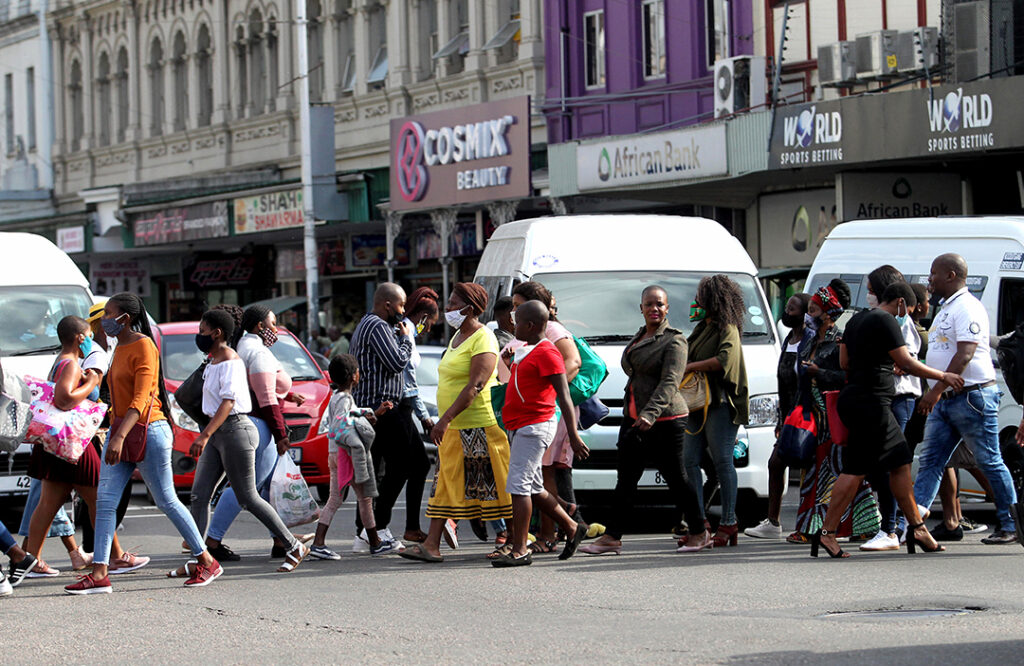ADF STAFF
Less than 60 days after it began, South Africa’s fifth wave of COVID-19 infections ended with the lowest peak and fewest deaths of any previous wave in the country.
The fifth wave was driven by the BA.4 and BA.5 strains of the omicron variant. The strains, which South African researchers identified, came after the original omicron strain, BA.1, which appeared in South Africa and Botswana in November 2021.
BA.4 and BA.5 showed a strong ability to reinfect people with immunity from previous infections, particularly if their infection was by earlier variants. Despite that, hospitalizations and deaths were a fraction of those posted in previous waves.
The National Institute for Communicable Diseases (NICD) reported in early June that case positivity for BA.4 and BA.5 had dropped to 7.6% compared with a peak of 31.1% in early May.
“Lasting [about] 8 weeks, it has been the shortest and least severe wave we have seen so far,” Ridhwaan Suliman, a mathematician and senior research for South Africa’s Council for Scientific and Industrial Research (CISR), commented on Twitter.
Suliman published a chart using NICD data that showed that the latest wave peaked at about 8,000 cases per day after about 30 days. By comparison, the first omicron wave produced a peak of nearly 24,000 cases per day after about 40 days.
Public health experts say the dramatic change in scale from the BA.1 wave to the most recent wave likely is due to widespread immunity to COVID-19 in South Africa’s population.
A study by South African National Blood Services (SANBS), which covers all provinces except the Western Cape province, showed that after the first omicron wave, 98% of South Africans carry COVID-19 antibodies in their blood.
The sharp increase after the first omicron wave was surprising, according to Marion Vermeulen, a virologist who oversees the blood service’s transfusion medicine and technical services.
“We weren’t expecting such a big increase this time around on such a high-level background,” Vermeulen told South Africa’s eNCA new channel. “So, we were very surprised to see this jump.”
Suliman said the BA.4/BA.5 wave likely is to be the way South Africa experiences COVID-19 going forward. South Africa has dropped all measures put in place two years ago to stem the spread of the disease. It also has stopped contact-tracing COVID-19 cases.
“For a lot of people, the symptoms have been milder, so people have chosen to isolate and wait out the symptoms,” Suliman said in a radio interview.
Because they are less worried about COVID-19 infections, fewer South Africans are being tested for the disease unless they have symptoms or close contact with an infected person. That might skew case-positivity numbers, making them a less reliable indicator of future outbreaks, Suliman said.
Despite that, South African scientists still can keep an eye out for potential threats from COVID-19.
“We continue with a very good network for genomic surveillance, which is monitoring for emerging variants,” Suliman said. “And I think that remains very important going forward.”

